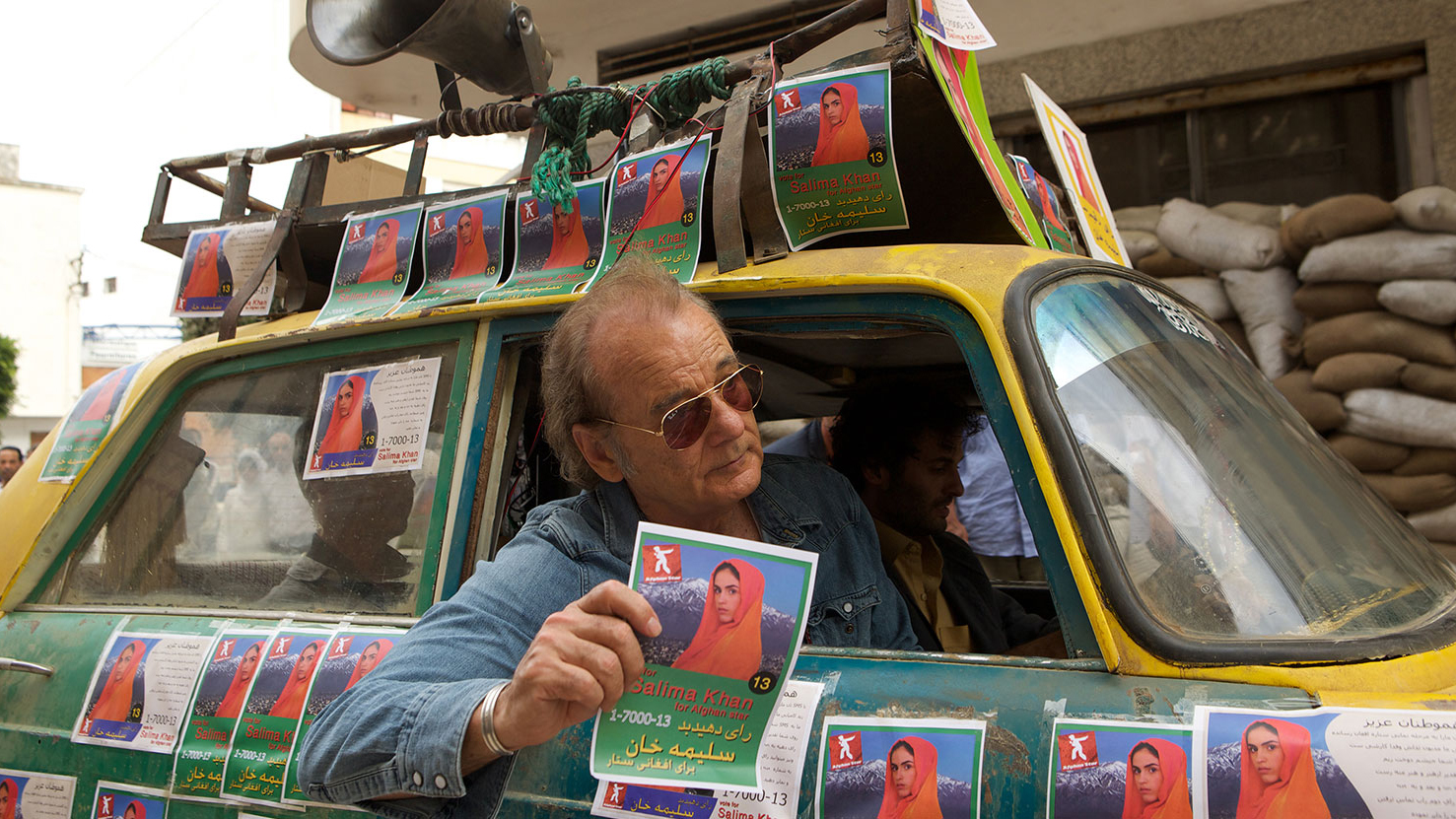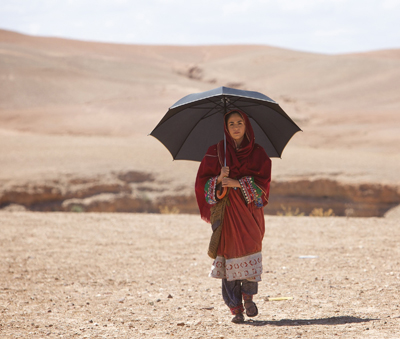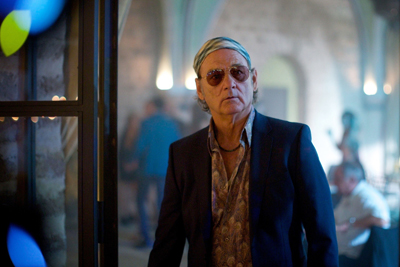In 2008, a young Afghan woman, Setara Hussainzada, made international headlines when she danced in a hijab on live TV for the Afghan singing competition show, Afghan Star. Setara and another woman, Lima Sahar, were in the final four, farther than any women had ever made it before on the show. Setara was eliminated for her dancing, and Lima was voted off immediately after. They both (Setara in particular) proudly defended their runs on the show and encouraged other female Afghan artists to pursue creative careers.
Now married and settled in Kabul, Setara spoke in a documentary made about her, Silencing the Song, about how she can’t go anywhere unarmed because of the constant death threats made to her and her family. But she also shows no regret for the choices she made, and though no one outside her family might be able to hear it again, she continues to make music.
 Dune Films
Dune FilmsSetara gently pushed back against her culture’s stigmas in a way that laid cornerstones for further growth instead of trying to blow whole institutions to smithereens. I found her story engaging, encouraging, and quietly inspiring.
But according to Rock the Kasbah, it’s not movie material.
Bear with me for a bit while I explain what I think happened: movies need stakes that can be almost instantly tangible for the audience so they can invest in the story. It’s one thing to say Setara might be killed for dancing on live TV; it’s another to say Setara has not yet been directly attacked but must live with the constant stress of knowing it might happen. Most American moviegoers will watch one with relish and resolutely ignore the implications of the other.
Even when the plot is reduced to that dilemma, the immediacy of the setting will still be off-putting. We see enough of war-torn Afghanistan on the news, right? Nobody wants to watch a young woman with admirable dreams struggle to achieve them while her world crumbles from the effects of war, tyrannical governments, and oppressed cultural expression – wait, sorry, the fourth Hunger Games movie isn’t out until next month, my bad.
My point is that somewhere down the line Rock the Kasbah’s filmmaking team decided audiences wouldn’t be satisfied with a movie about Setara Hussainzada. Instead, her story would have to be filtered through Bill Murray’s deadpan jokes, Kate Hudson’s bad accent, Zooey Deschanel’s lounge singing, and director Barry Levinson’s white savior complex before America could see it.
Cinematically, Rock the Kasbah isn’t that bad. Bill Murray plays washed-up music manager Richie Lanz, who thinks the big break his struggling star, Ronnie (Zooey Deschanel), needs is on the USO tour in Kabul, Afghanistan. Ronnie, blubbering from terror from the moment they get on the plane, abandons Richie in Kabul without money or a passport (I’d like to make a quick note to say I was really disappointed that Deschanel didn’t get more screen time. She was playing something way outside her wheelhouse and it was actually pretty cool.)
 Dune Films
Dune FilmsLeft (literally) high and dry, Richie stumbles around Kabul until he falls in with an American prostitute, Merci (Kate Hudson), and some “friendly” arms dealers (Bruce Willis and co.). He winds up escorting a shipment of munitions to a Pashtun village in the hopes that the money he makes smooth-talking the villagers into a deal will help him get a passport. While there he overhears a girl singing in a cave. Entranced by her voice, Richie is convinced that it was fate that brought him there so he can help her be heard.
Against all the warnings that he’ll get himself and the girl, Salima (Leem Lubany), killed, he announces to her village that she was signing and that he wants to help her compete on Afghan Star. Turns out, Salima also believes it’s her fate to be a singer. She stows away in the trunk of Richie’s car and demands that he help her, throwing in a lot of, “It’s God’s will,” and, “We must all play our parts.”
What the movie half-heartedly tries to say is that Afghan women should be given the agency to choose for themselves if they want to be performers, that they shouldn’t be limited by religious rules. But in execution, the movie robs Salima, and most importantly her inspiration, Setara, of all their agency. Salima’s religious convictions feel like a sham to disguise lazy writing; she relies totally on her American benefactors, Richie and Merci, to forge her path; Salima’s story evokes Setara’s in appearance only. Most of the details were changed to make room for players like Richie and Merci to have a more powerful effect on the plot than Salima herself. It should be noted Salima doesn’t appear in the film until over an hour in.
All this said, the dialogue can be pretty funny; after all, it is Bill Murray. It also does a stellar job of weaving music into and on top of scenes – my favorite was Shakira’s “Suerte” as an unexpectedly apropos accompaniment to shots of urban Kabul. But just like Richie’s smooth-talking can’t get him out of every sticky situation, the movie’s soundtrack and colorful cinematography can’t smooth-talk itself past a mess of cultural insensitivities.
Rock the Kasbah isn’t a bad movie, but it is a good example of a movie made for bad reasons. Filmmakers should not excuse themselves from genuinely engaging with cultural realities they don’t understand in order to exploit those realities as backdrops for tired stories (see also: my review of Marvel’s Antman, which wasn’t as bad, but goes to show how pervasive this attitude is).
 Dune Films
Dune FilmsFor those of you shaking your heads and another critic gone haywire over nothing, I’ll own up and say that stewardship of privilege is a huge thing for me, so yes, I am taking this pretty seriously. I believe artists, and especially Christian artists, get talent and responsibility in equal measures. We’re tasked with taking the world and figuring it out for ourselves and for other people in intimate, emotional, soul-full ways. Messing that task up has huge consequences.
American filmmakers have so much privilege: money, freedom, educators, innovators, viewers – I could go on and on. They’ve got the chance to give people like Setara a chance to tell their own stories in really effective, influential ways. Instead, they’ve used their privilege to let Bill Murray wail “Smoke on the Water” in a Pashtun village so audiences can smirk at the irony.
Caveat Spectator
I stopped trying to tally up the f-bombs after about half an hour, and there are plenty of other curse words in the meantime. Ronnie’s brought to tears and vomiting on the flight to Kabul by her fear of the Islamic men on the plane. There are lots of explosions, some of which are landmines on desert roads that threaten main characters. There’s also a lot of gun violence. A character gets shot and bleeds unattended for a few minutes. A few characters use the middle finger at each other. There’s a ton of drug use: Ronnie takes some pills on the plane ride, many characters smoke hookah, a few smoke pot, and a major plot point revolves around the opium trade in Afghanistan. Merci is a prostitute, and everything you can think of happening involving a prostitute in an R-rated movie happens.
Jessica Gibson is a former intern with Christianity Today Movies and a student at The King’s College in New York City. She tweets only to fangirl and gripe @GibbyTOD.





